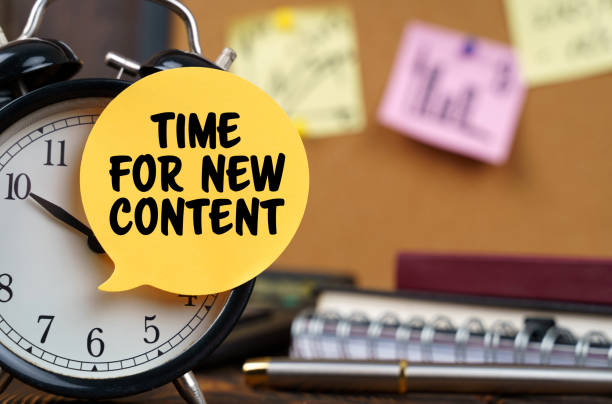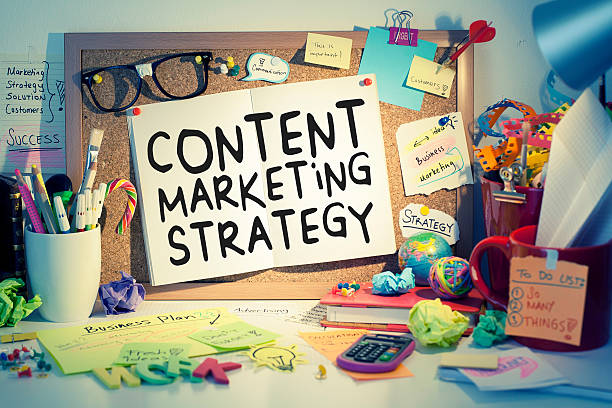Have you ever wondered why some agencies consistently outperform others in the digital space? What sets them apart when it comes to building client trust and generating leads? So, the answer often lies in one critical factor: a well-executed content marketing strategy.
But how do you craft a strategy that delivers real results? Also, what are the essential components every agency must have to stand out in today’s competitive market? Whether you’re an established agency or just starting out, understanding these essentials can transform your marketing efforts and elevate your brand.
So, in this post, we’ll dive into the must-know elements of a content marketing strategy tailored for agencies. Additionally, from defining your audience to leveraging analytics, these insights will help you create impactful content that resonates with your target audience and drives measurable outcomes. So, let’s get started!
Define Your Audience: Who Are You Speaking To?
Effective content marketing begins with a clear understanding of your target audience. Additionally, without knowing who you’re trying to reach, your efforts will likely fall flat.
Why it matters:
- Tailored content resonates better and fosters stronger connections.
- Understanding pain points helps you position your agency as a solution.
How to define your audience:
- Create detailed buyer personas that include demographics, goals, challenges, and preferred communication channels.
- Conduct surveys, interviews, and market research to gather insights.
- Use tools like Google Analytics and social media insights to refine your understanding.
Pro Tip:
Focus on niches within your target market. Specialized content often performs better than generic messaging.
Set Clear Goals: What Are You Trying to Achieve? – Content Marketing Strategy
Before diving into content creation, ask yourself: What does success look like? So, setting clear, measurable goals will guide your efforts and help you track progress.
Common content marketing goals for agencies include:
- Increasing website traffic.
- Generating qualified leads.
- Building brand authority in a specific niche.
- Enhancing client retention through valuable insights.
SMART Goals Framework:
Make your goals Specific, Measurable, Achievable, Relevant, and Time-bound. For example, instead of saying, “We want more traffic,” aim for, “Increase organic website traffic by 20% within six months.”
Develop a Content Plan: Consistency is Key – Content Marketing Strategy
Agencies often fail in content marketing because of inconsistent publishing schedules. Also, a content plan ensures regular, high-quality output that aligns with your goals.
Steps to create a content plan:
- Brainstorm topics that address your audience’s needs and align with your expertise.
- Use a content calendar to schedule blog posts, social media updates, email campaigns, and videos.
- Optimize content for SEO to maximize visibility and reach.
Key components to include:
- Blog posts to establish thought leadership.
- Case studies showcasing successful campaigns.
- Whitepapers or eBooks for in-depth insights.
- Engaging social media content to drive interaction.

Focus on Quality Over Quantity – Content Marketing Strategy
While consistency matters, the quality of your content can make or break your strategy. Moreover, poorly written or irrelevant content damages your agency’s credibility.
Why quality matters:
- It builds trust with your audience.
- Search engines prioritize high-quality, authoritative content.
Tips for creating high-quality content:
- Research thoroughly to provide accurate, valuable information.
- Use visuals, infographics, and videos to enhance readability.
- Edit meticulously to eliminate errors and maintain professionalism.
Leverage Multi-Channel Marketing: Meet Your Audience Where They Are – Content Marketing Strategy
A successful content marketing strategy reaches your audience on multiple platforms. So, diversify your efforts to maximize impact.
Channels to consider:
- Social Media: Share short, engaging posts to drive traffic back to your website.
- Email Marketing: Provide personalized content directly to your subscribers.
- Podcasts and Webinars: Establish your agency as an industry leader.
- Paid Ads: Amplify your best-performing content to reach a wider audience.
Pro Tip:
Tailor content for each platform. A long-form blog post might work well on your website but needs to be repurposed into bite-sized graphics or reels for Instagram.
Incorporate Storytelling: Connect on a Human Level – Content Marketing Strategy
People connect with stories more than statistics. So, use storytelling to make your content relatable and memorable.
How to weave storytelling into your strategy:
- Share client success stories and testimonials.
- Highlight your agency’s journey, challenges, and milestones.
- Use case studies to showcase how you solved real-world problems.
Example:
Instead of saying, “We increased client X’s revenue by 50%,” narrate the journey: “Client X faced declining sales. Also, through targeted campaigns and creative strategies, we helped them achieve a 50% revenue increase within six months.”
Optimize for SEO: Visibility Drives Success – Content Marketing Strategy
Even the best content needs visibility to succeed. So, Search Engine Optimization (SEO) ensures your audience can find your content easily.
SEO essentials for agencies:
- Conduct keyword research to identify terms your audience is searching for.
- Optimize headlines, meta descriptions, and content for target keywords.
- Build backlinks from reputable websites to boost authority.
- Ensure your website is mobile-friendly and loads quickly.

Measure Performance: Are You Hitting Your Targets?
Data-driven insights are crucial for refining your content marketing strategy. Also, without measurement, you’re operating in the dark.
Key metrics to track:
- Website traffic and engagement.
- Conversion rates from content pieces.
- Social media shares and comments.
- ROI from content marketing campaigns.
Tools to help you measure success:
- Google Analytics: For website performance.
- HubSpot: For lead tracking and ROI measurement.
- Hootsuite: For social media engagement metrics.
Adapt and Improve: Stay Ahead of the Curve
Content marketing isn’t static. Also, trends change, algorithms evolve, and audience preferences shift. So, regularly update your strategy to stay relevant.
How to adapt:
- Stay updated on industry trends and emerging technologies.
- Experiment with new content formats like AI-generated videos or interactive quizzes.
- Seek feedback from your audience to understand their evolving needs.

Conclusion: Content Marketing Strategy
So, content marketing is a powerful tool for agencies looking to build authority, attract clients, and drive growth. Additionally, by defining your audience, setting clear goals, and consistently delivering high-quality, optimized content, you can create a strategy that stands out.
Lastly, the key to success is staying flexible and focused. Also, analyze what works, adapt to changes, and never stop refining your approach. So, with these essentials, your agency is well on its way to content marketing mastery.
So, what’s your next step? Start by evaluating your current strategy. Identify gaps, and take action to create content that captivates, informs, and converts.







